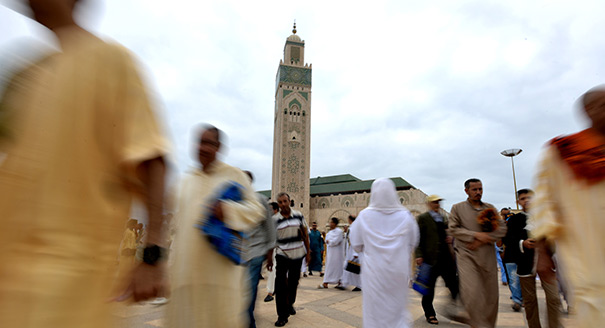Registration
You will receive an email confirming your registration.
Online registration for this event is now closed. Watch the livestream at 9:00 A.M.
Religious authority is an increasingly influential but poorly understood source of power in governments throughout the Middle East. Who speaks for Islam in the region? How do Islamists and fundamentalists harness and exert religious authority, despite Islam’s largely decentralized power structure?
In a project supported by the Henry R. Luce Foundation, this study maps religious authority and the channels of influence between religious actors in the region and broader populations using a 12-country public opinion survey throughout the Middle East and North Africa. The survey data provides a snapshot of religious authority in various contexts, supplemented by fieldwork that examines specific mechanisms that build and maintain religious authority.
The Baker Institute Center for the Middle East and the Carnegie Endowment for International Peace present a daylong conference during which leading Middle East and North Africa experts discuss the implications of the study’s findings.
This event is generously hosted by the Carnegie Endowment for International Peace.
Project Partners
Baker Institute Center for the Middle East
The Baker Institute Center for the Middle East provides policymakers, scholars and the public with comprehensive analyses of issues, events and trends across this critical region with important implications for U.S. policy and global stability. The center offers a nonpartisan voice relying on data-driven research and direct engagement with decision-makers in the United States and in the region.
Carnegie Endowment for International Peace
The Carnegie Endowment for International Peace is a unique global network of policy research centers in Russia, China, Europe, the Middle East, India, and the United States. Working together, its centers bring the inestimable benefit of multiple national viewpoints to bilateral, regional, and global issues.
Henry R. Luce Foundation
The Henry R. Luce Foundation seeks to enrich public discourse by promoting innovative scholarship, cultivating new leaders, and fostering international understanding. The Foundation advances its mission through grantmaking and leadership programs in the fields of Asia, higher education, religion and theology, art, and public policy.
Conference Agenda
8:00 – 9:00 a.m.
Registration & Breakfast
9:00 – 9:10 a.m.
Welcome
Sarah Yerkes
9:10 – 9:20 a.m.
Introduction
A.Kadir Yildirim
9:20 – 10:00 a.m.
Keynote Address
Shaun Casey
10:00 – 11:00 a.m.
Panel I: The State, Religious Authority, and Legitimacy
Chair:
Nathan Brown
Panelists:
Courtney Freer, Annelle Sheline, Scott Williamson
11:00 – 11:10 a.m.
Break
11:10 a.m. – 12:25 p.m.
Panel II: Non-state Religious Actors and Authority
Chair:
Sarah Yerkes
Panelists:
Sharan Grewal, Mirjam Künkler, Tarek Masoud, Yusuf Sarfati
12:25 – 1:00 p.m.
Lunch
1:00 – 2:00 p.m.
Keynote Address
Peter Mandaville
2:00 p.m.
Closing Remarks
A.Kadir Yildirim
